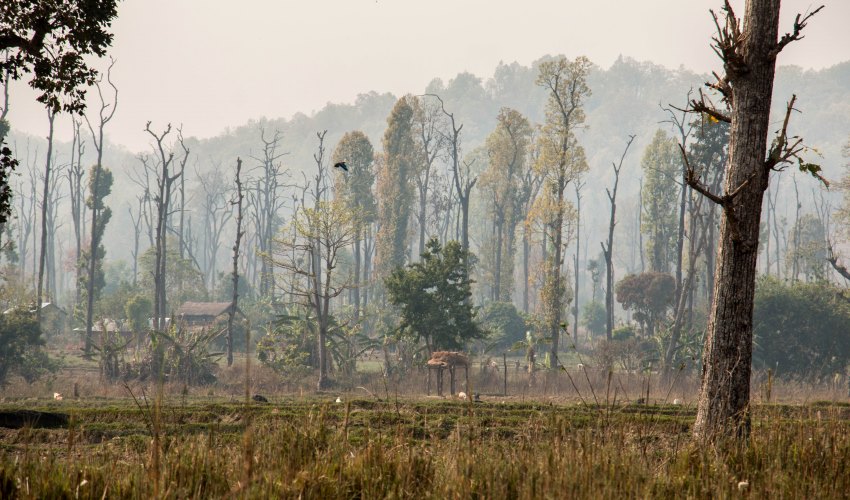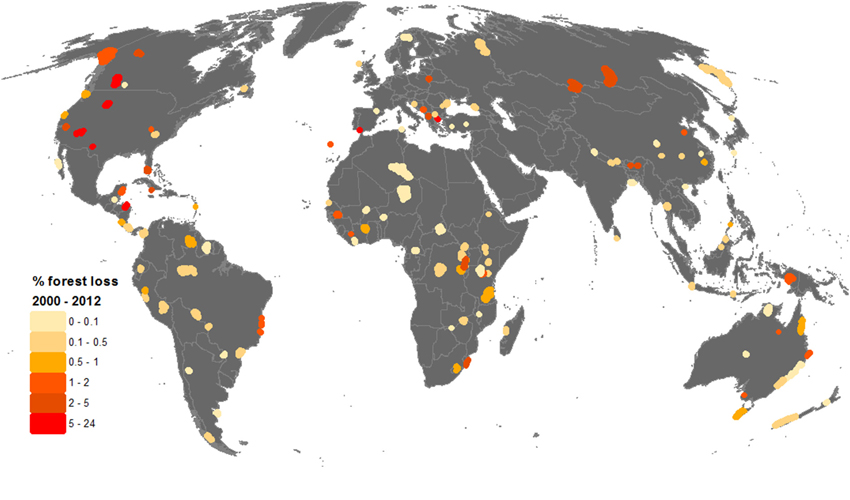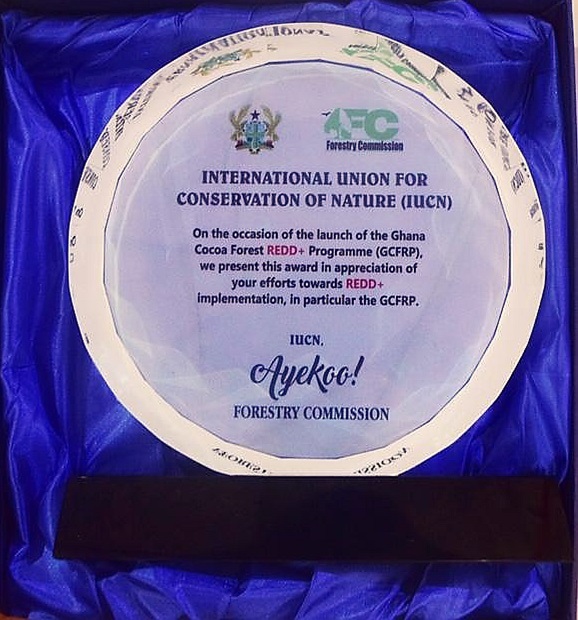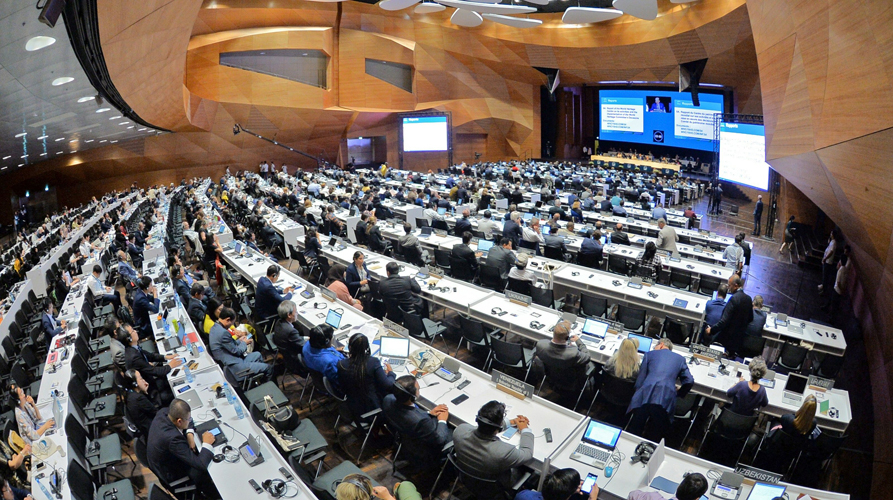Paper reveals severity of human footprint and forest loss in natural World Heritage sites
The majority of natural World Heritage sites are under increasing pressure from human activities, according to a new analysis quantifying for the first time changes in human footprint and forest loss in over 100 terrestrial natural World Heritage sites.
“The data speaks for itself: human pressure and forest loss are increasing in the world’s most precious natural areas,” says Bastian Bertzky, Science Adviser for IUCN’s World Heritage Programme and co-author of the paper. “Despite their international recognition, natural World Heritage sites are continuously facing severe threats, including from logging, mining, dams and roads, when they should be granted the highest level of protection.”
The study, led by an international team of researchers from the University of Queensland, Wildlife Conservation Society (WCS), University of Northern British Columbia and the International Union for Conservation of Nature (IUCN) appears in the journal Biological Conservation.
The authors analysed changes in human pressure from 1993 to 2009 using the updated global Human Footprint dataset developed by WCS, which includes population density, agriculture, urbanisation, transportation and industrial infrastructure. They also used data from the Global Forest Watch initiative to measure forest loss between 2000 and 2012.
They found that, over the past two decades, human footprint has increased in 63% of the 94 natural World Heritage sites analysed, a trend evident across all continents except Europe. Some of the most impacted sites were found in Asia, including in important habitats for endangered species such as India’s Manas Wildlife Sanctuary, where tigers and Indian elephants coexist, and Nepal’s Chitwan National Park, home of the one-horned rhino.
“It is time for the global community to stand up and hold governments to account so that they take the conservation of natural World Heritage sites seriously. We urge the World Heritage Committee to immediately assess the highly threatened sites we have identified. Urgent intervention is clearly needed to save these places and their outstanding natural universal values,” says the lead author James Allan from the University of Queensland.
Forests occurring in natural World Heritage sites have decreased in 91% of cases from 2000 and 2012, cumulating in a total of 7271 sq km of lost forest. For instance, Río Plátano Biosphere Reserve in Honduras has lost over 8% of its forests. The site is already listed as “World Heritage in danger”. But an unexpected finding is that North American sites account for over half of all the forest loss measured. Yellowstone National Park in the USA has lost some 6% of its forests and Waterton Glacier International Peace Park across the Canadian and US border lost 23% (or 540 sq km) of its forested area.
While the study did not look at the specific reasons for the observed forest loss, which are often complex and can come from natural as well as man-made processes, the authors noted that several North American sites were heavily affected by large pine beetle outbreaks.
On the positive side, most natural World Heritage sites have been less damaged compared to their surroundings, where on average human pressure increased faster and more forest loss occurred. While this suggests listed sites overall fare better in terms of protection, it also indicates they are becoming increasingly isolated and are under threat from processes occurring outside their borders.
“The analysis can be used to alert managing authorities and the international community to look into what is causing changes and address issues effectively,” says Bastian Bertzky. “Its results will also support IUCN’s monitoring work in its advisory role towards the World Heritage Committee and in the IUCN World Heritage Outlook assessments to be updated at the end of 2017.”
The article “Recent Increases in Human Pressure and Forest Loss Threaten Many Natural World Heritage Sites” by James Allan and colleagues appears in Biological Conservation, Volume 206, February 2017 (doi: 10.1016/j.biocon.2016.12.011).
Natural World Heritage sites are globally recognised as containing some of the Earth’s most valuable natural assets and include iconic places such as the Serengeti National Park, the Great Barrier Reef or Ha Long Bay. Currently, 238 sites are inscribed on the World Heritage List for their exceptional natural values. To ignore changes that occurred before inscription, the study looked only at terrestrial sites inscribed before 1994 for the human footprint analysis (94 sites) and before 2001 for the forest loss analysis (134 sites).
IUCN is the official advisory body on nature to the World Heritage Committee, which will convene for its annual meeting from 2 tto 12 July 2017 in Krakow, Poland.





